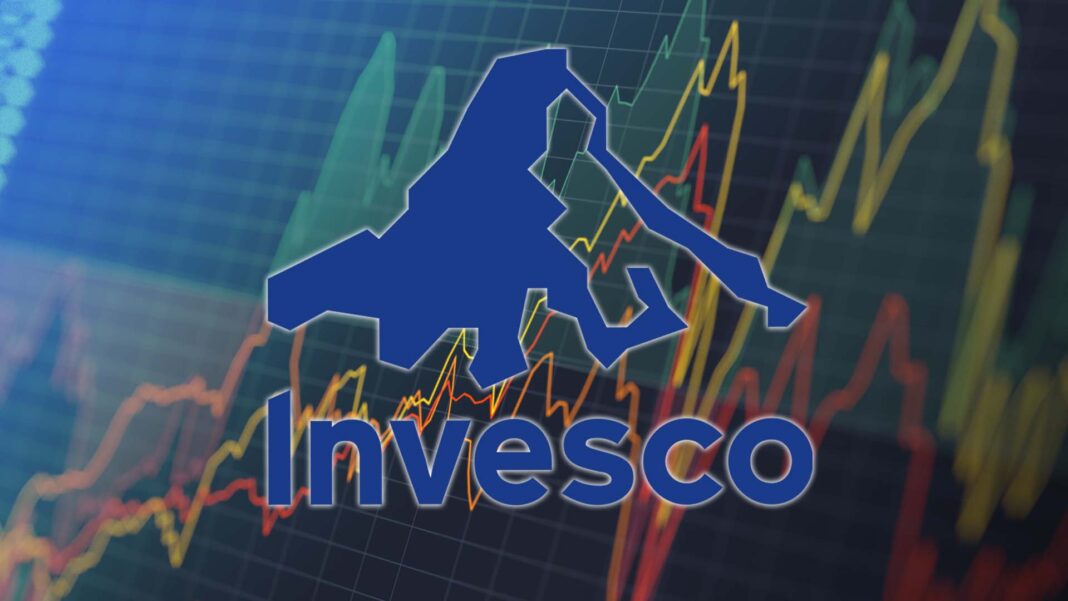The Invesco QQQ Trust (QQQ), a leading ETF tracking the Nasdaq-100 Index, took a sharp nosedive today—dropping nearly 5%—as escalating trade tensions between the United States and China send shockwaves through global markets.
With tech giants like Apple, Nvidia, and Tesla dragging down the index, investors are grappling with renewed uncertainty in what has long been considered a high-growth sector.
This latest plunge is not just a one-day market hiccup—it’s a reflection of growing unease about how geopolitical friction is fundamentally reshaping tech portfolios.
The Catalyst: A New Chapter in U.S.-China Trade Tensions
This week’s market volatility was triggered by Beijing’s retaliatory tariffs—an aggressive 34% levy on U.S. imports, particularly targeting high-tech and electronic components.
The move came in response to President Trump’s decision to increase tariffs on Chinese goods, part of a broader protectionist policy aimed at reshoring manufacturing and reducing dependency on China for semiconductors and rare earth materials.
These developments have direct implications for tech-heavy indices like the Nasdaq-100, where many companies maintain deep supply chain ties with Chinese manufacturers or generate significant revenue from Chinese consumers.
QQQ in Focus: What’s Behind the Fall
The QQQ ETF is often seen as a barometer for the tech sector. As of this afternoon, the fund had dropped to $428.85, its lowest point in weeks, with trading volume spiking as nervous investors rushed to de-risk.
Key culprits behind the downturn:
-
Apple (AAPL): Dropped 4.6% today, following a 9.3% fall the previous day. With iPhone sales in China under pressure and production delays due to new tariffs, Apple is among the hardest hit.
-
Nvidia (NVDA): Fell 7.3% as fears mount over a potential chip supply squeeze and reduced demand in Asia.
-
Tesla (TSLA): Tumbled 10% as its Shanghai factory faces regulatory uncertainties and a possible consumer backlash.
QQQ’s concentrated exposure to mega-cap tech stocks—many of which are deeply entwined with China—makes it particularly vulnerable to these macroeconomic rifts.
Investor Sentiment: Flight to Safety or Opportunity?
The sharp sell-off has triggered a wave of investor rebalancing. According to analysts, some institutional investors are reallocating capital to more diversified ETFs or sectors less exposed to international trade risks, such as utilities, healthcare, or domestic-focused small caps.
Meanwhile, contrarian investors are already eyeing this drop as a potential “buy the dip” moment—especially for long-term believers in innovation-led growth.
“Tech isn’t going away, but the rules of the game are shifting,” says Laura Tan, an ETF strategist at Apex Capital. “Investors need to be more nimble, and that means rethinking exposure to geopolitical flashpoints.”
Portfolio Implications: The Need for Geographic and Sectoral Diversification
Today’s QQQ slide serves as a wake-up call: geopolitical diversification is no longer optional.
What investors should consider:
-
Review Supply Chain Dependencies: Evaluate how reliant portfolio companies are on China-based manufacturing or components.
-
Explore Broader Thematic ETFs: Consider alternatives like ESG-focused or AI-centric ETFs that may offer similar growth potential but with different risk profiles.
-
Don’t Overweight the Big Five: Mega-cap tech names dominate QQQ, but adding mid-cap or emerging market tech exposure can help buffer volatility.
-
Look at Currency and Commodity Hedges: U.S.-China tensions can ripple into forex and commodity markets. Gold, for example, has risen amid the current uncertainty.
Looking Ahead: More Volatility in Store?
With neither Washington nor Beijing signaling a willingness to de-escalate, analysts expect continued volatility in tech equities—and by extension, ETFs like QQQ.
The next few weeks will be pivotal, especially as earnings season approaches. Companies will likely face tough questions from analysts about supply chain resilience, cost inflation due to tariffs, and shifts in global strategy.
For investors, today’s market drama is a reminder that global politics now play a starring role in shaping financial outcomes—and that even the most seemingly stable tech portfolio is not immune from international tremors.
The QQQ slide is more than just a market correction; it’s a reflection of deeper structural shifts in global trade and tech investing.
As U.S.-China tensions intensify, investors must adapt quickly—by diversifying, staying informed, and building portfolios resilient enough to withstand geopolitical storms.
Also Read
